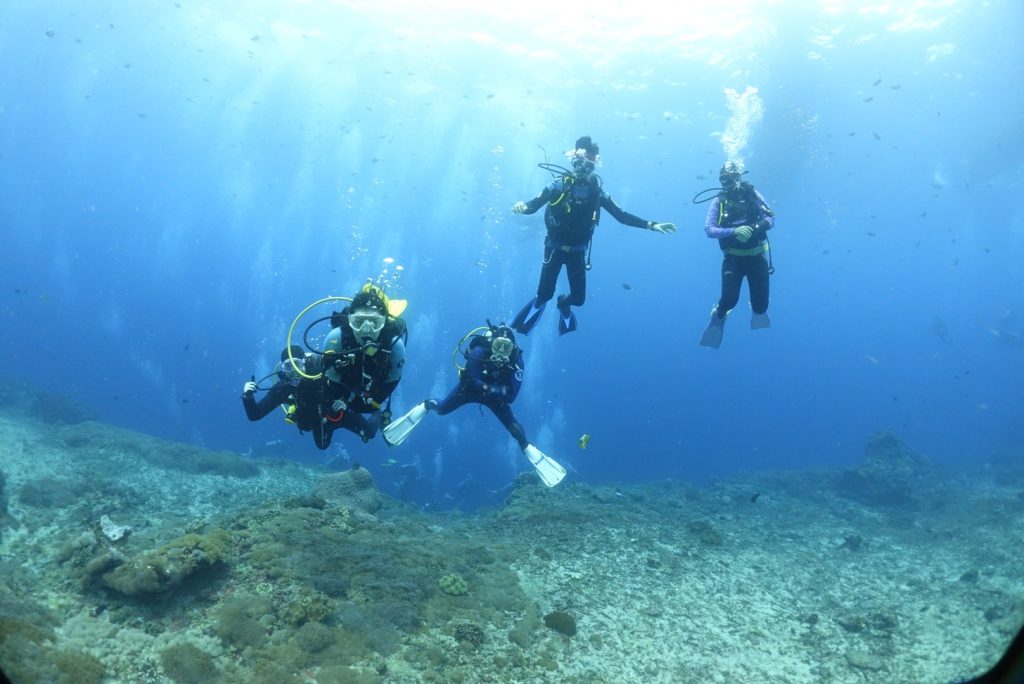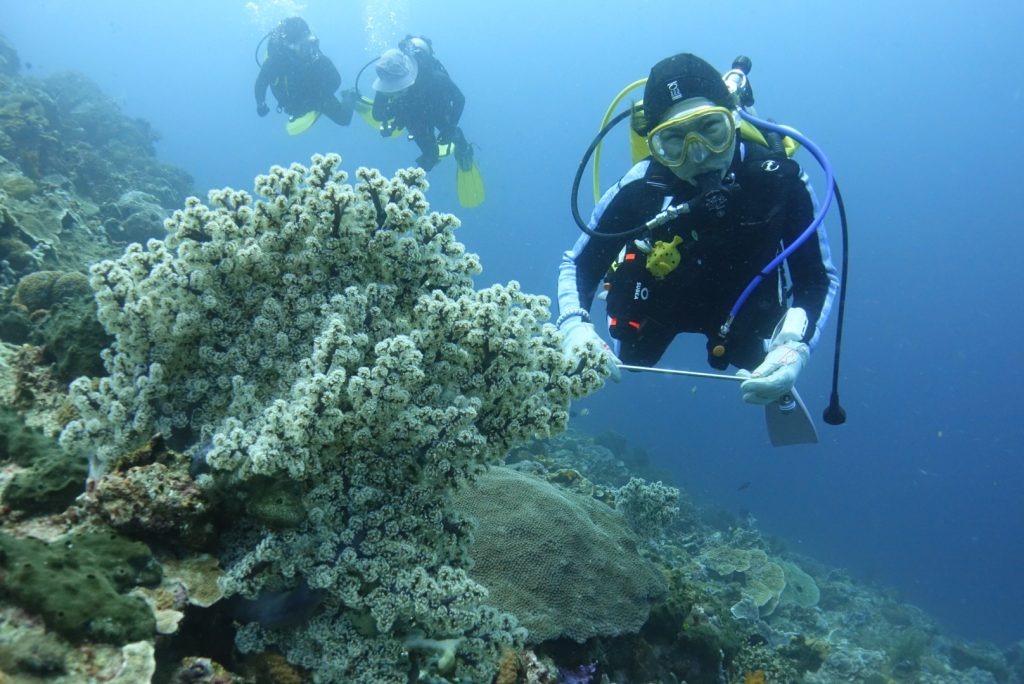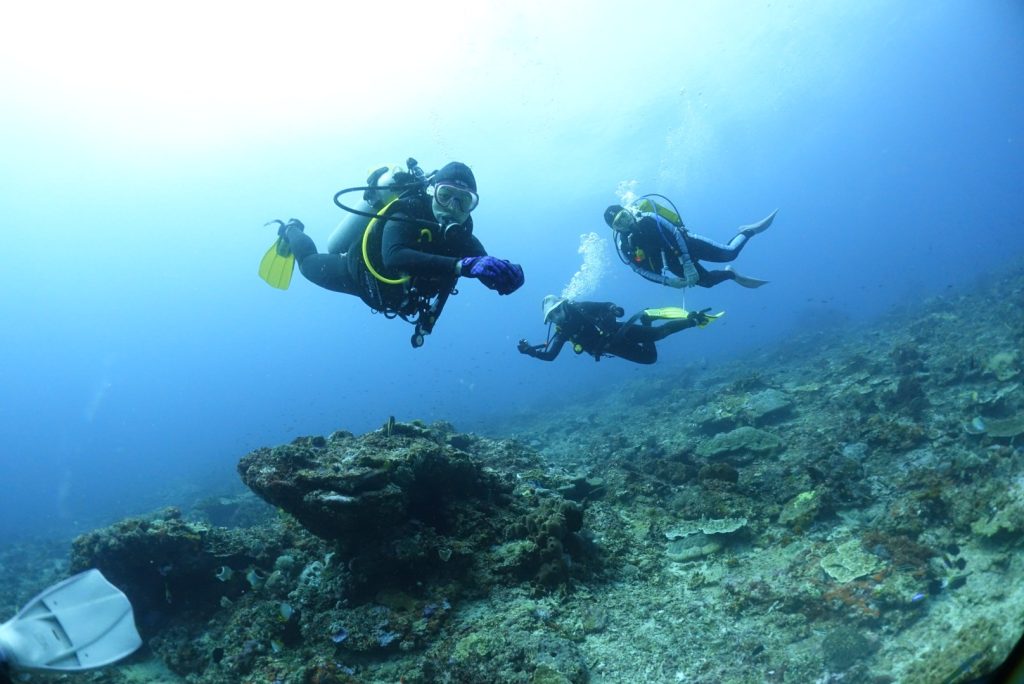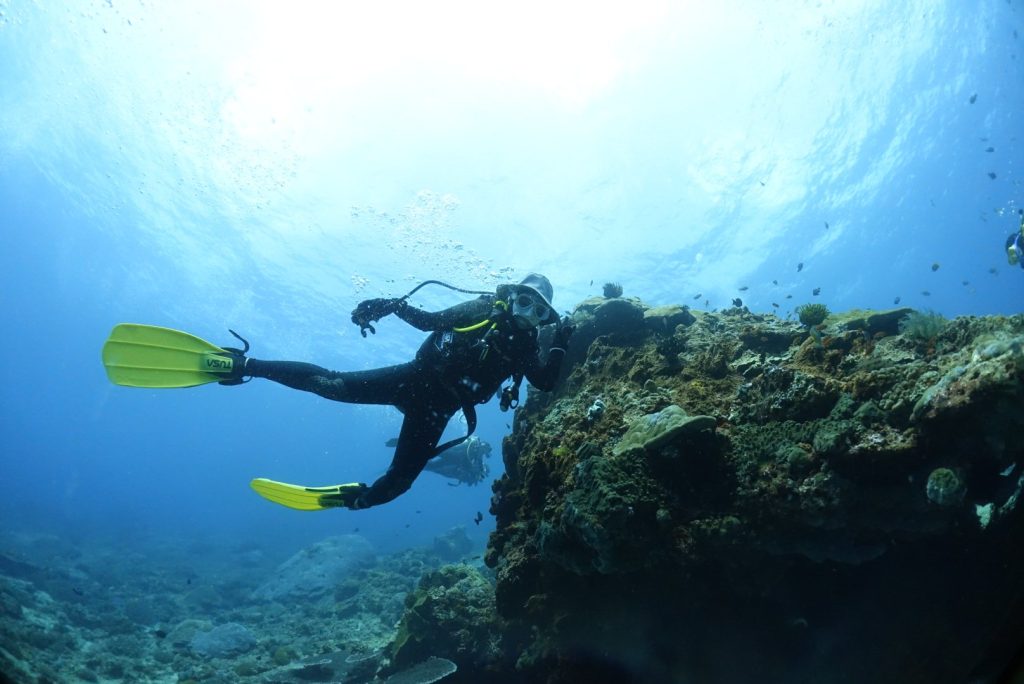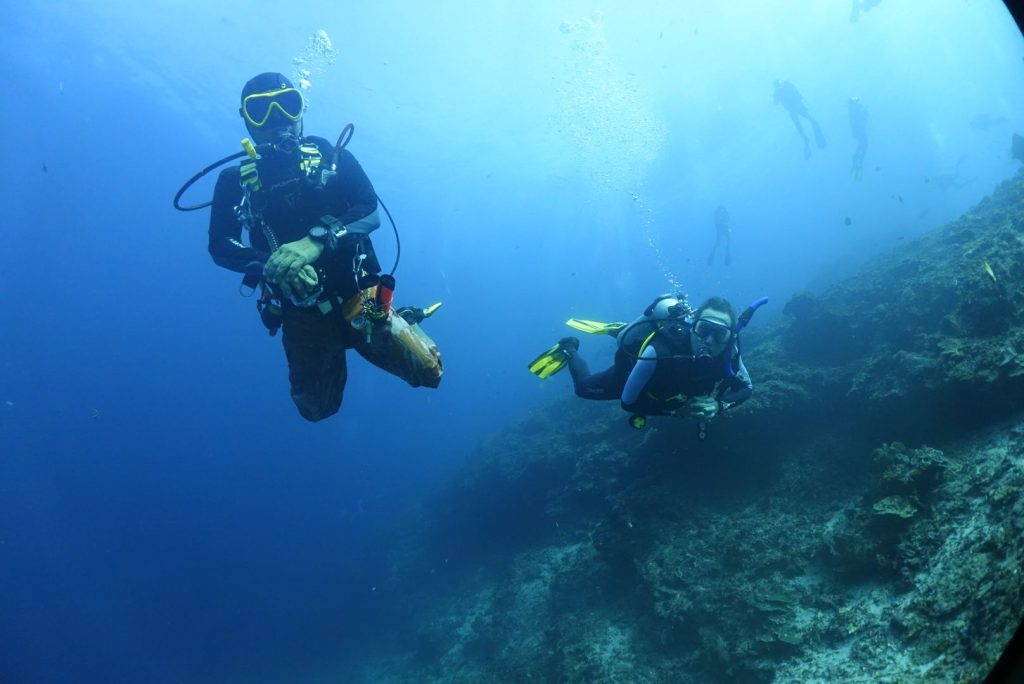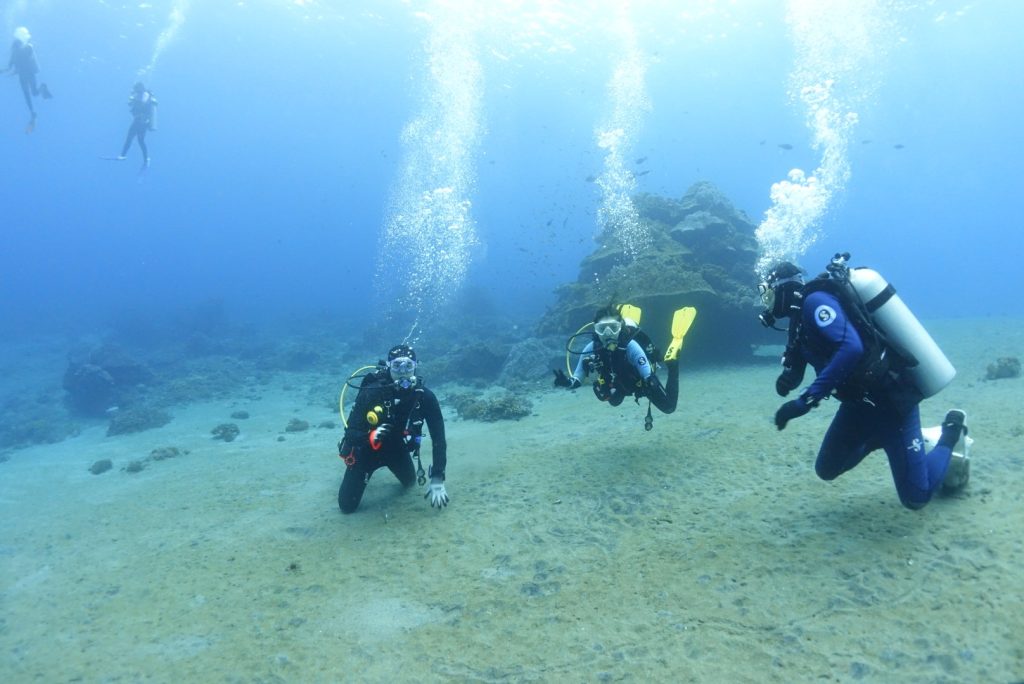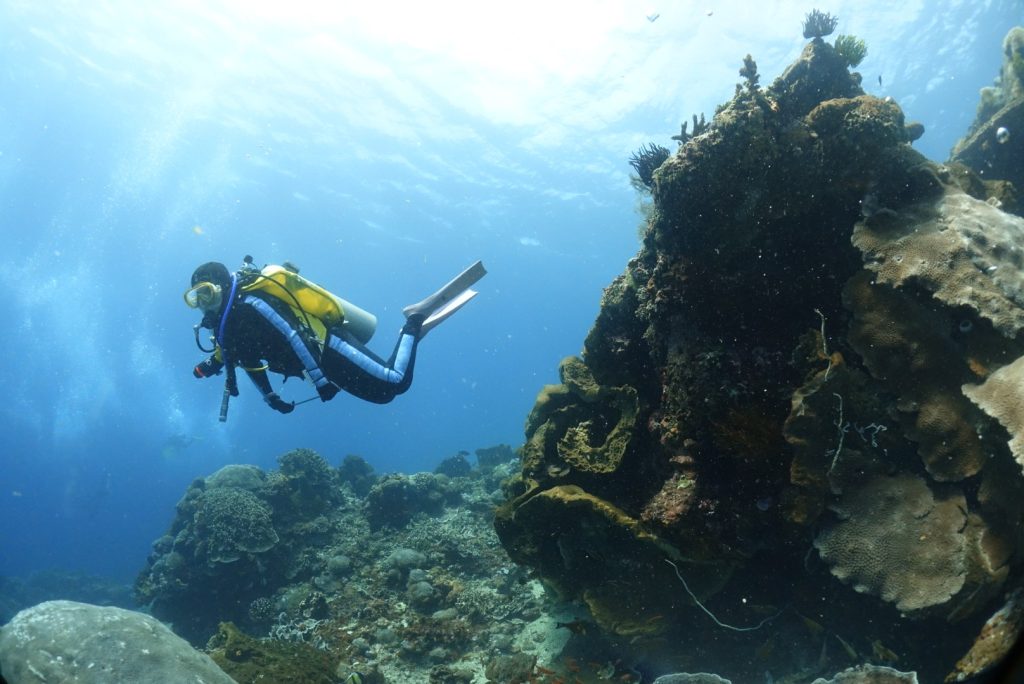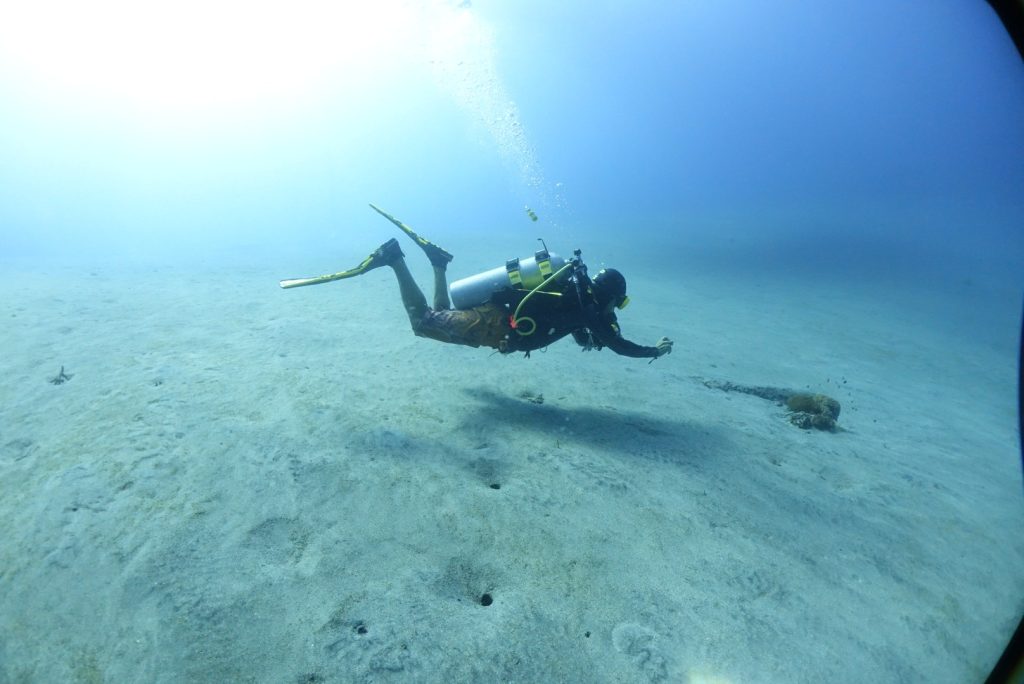Discover Scuba Diving
Discover Scuba Diving (DSD) offers a thrilling glimpse into the captivating world beneath the waves for those curious about scuba diving.
Led by experienced instructors, DSD provides an immersive experience in a safe and controlled environment to dive in shallow waters, allowing participants to marvel at the beauty of marine life under expert supervision.
Discover Scuba Diving is perfect for individuals seeking an unforgettable adventure and a taste of the exhilarating world of scuba diving before committing to a full certification course.
What you need to know
Participants will typically need to fill out some paperwork, which may include a liability release form and a medical questionnaire to ensure they are fit to dive.
Participants will receive a briefing from a certified scuba diving instructor or dive master. This orientation session covers basic scuba diving principles, equipment use, underwater breathing techniques, and safety procedures. It's important for participants to pay attention during this briefing to ensure a safe and enjoyable experience.
Participants will be fitted with scuba diving equipment, including a mask, snorkel, fins, wetsuit (if needed), buoyancy control device (BCD), regulator, and air tank. The instructor or dive center staff will assist participants in selecting the appropriate sizes and ensuring a proper fit.
Participants will typically have the opportunity to practice basic scuba skills in a confined water environment such as a swimming pool or shallow bay. This portion of the experience allows participants to become comfortable with the equipment and the sensation of breathing underwater. Common skills practiced may include clearing the mask, regulator recovery, buoyancy control, and underwater communication.
Depending on the program and location, participants may have the opportunity to go on an actual scuba dive under the direct supervision of the instructor or dive master. This dive is usually conducted in a controlled environment such as a shallow reef or calm bay, where participants can experience the underwater world firsthand. The instructor will guide participants throughout the dive, ensuring their safety and comfort.
After the dive, there is typically a debriefing session where participants can ask questions, provide feedback, and discuss their experience with the instructor. This is also an opportunity for the instructor to provide feedback and encouragement to participants.
Some dive centers offer the option for participants to receive credit towards a scuba diving certification for completing a Discover Scuba Diving experience. This allows participants to continue their scuba diving education if they decide they want to pursue diving further.
Open Water certification
Open Water Certification: Your Passport to the Underwater World!
Embark on a journey of exploration and adventure with Open Water Certification. This comprehensive course equips you with the knowledge and skills to dive safely and confidently in open water environments, master essential diving techniques and understand marine life conservation
Take the plunge and join the global community of certified divers today!
Steps in obtaining Open Water Certification
Participants begin by completing the theoretical portion of the course, which covers essential diving principles, safety guidelines, equipment usage, and dive planning. This knowledge can be acquired through self-study using materials provided by the certification agency or through instructor-led classroom sessions.
Participants progress to confined water training, where they practice essential scuba diving skills in a controlled environment such as a swimming pool or shallow bay. Under the guidance of a certified instructor, participants learn and demonstrate skills like regulator recovery, mask clearing, buoyancy control, and underwater communication
Once participants have mastered the necessary skills in confined water, they move on to open water dives. These dives typically take place in a natural body of water such as a lake, quarry, or ocean. Participants apply the skills they've learned during confined water training while exploring the underwater environment under the supervision of their instructor.
Throughout the course, participants are evaluated on their understanding of diving principles and their ability to apply learned skills. This may include quizzes, exams, and practical assessments conducted by the instructor to ensure participants meet the certification requirements.
Upon successful completion of the knowledge development, confined water training, and open water dives, participants are awarded their Open Water certification. This certification allows them to dive independently with a buddy to a maximum depth of 18 meters (60 feet) in conditions similar to or better than those in which they were trained.
Some certification agencies offer additional training courses beyond the Open Water certification, such as Advanced Open Water, Rescue Diver, and specialty courses. These courses allow divers to further enhance their skills and explore specific areas of interest within the diving community.
